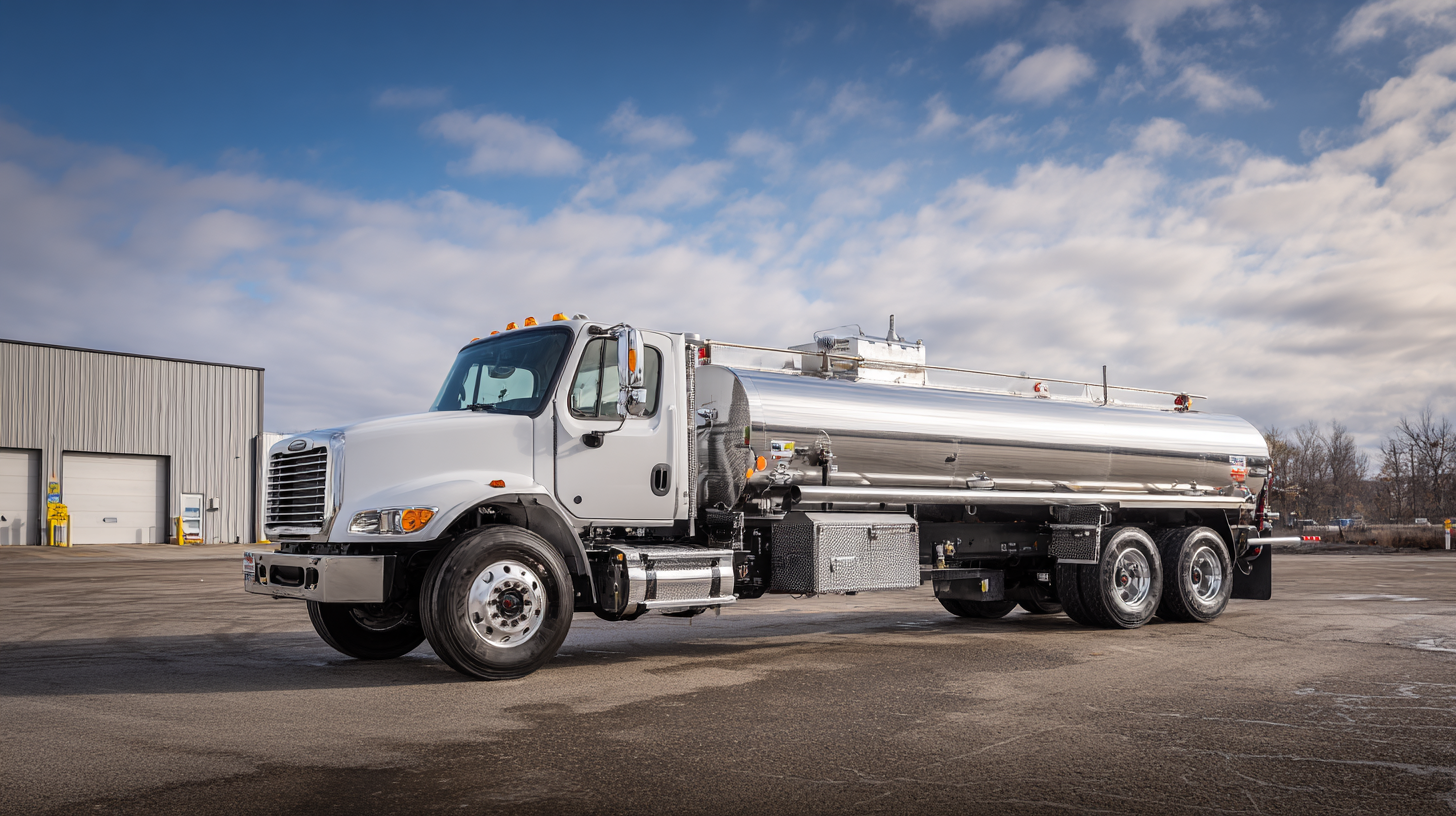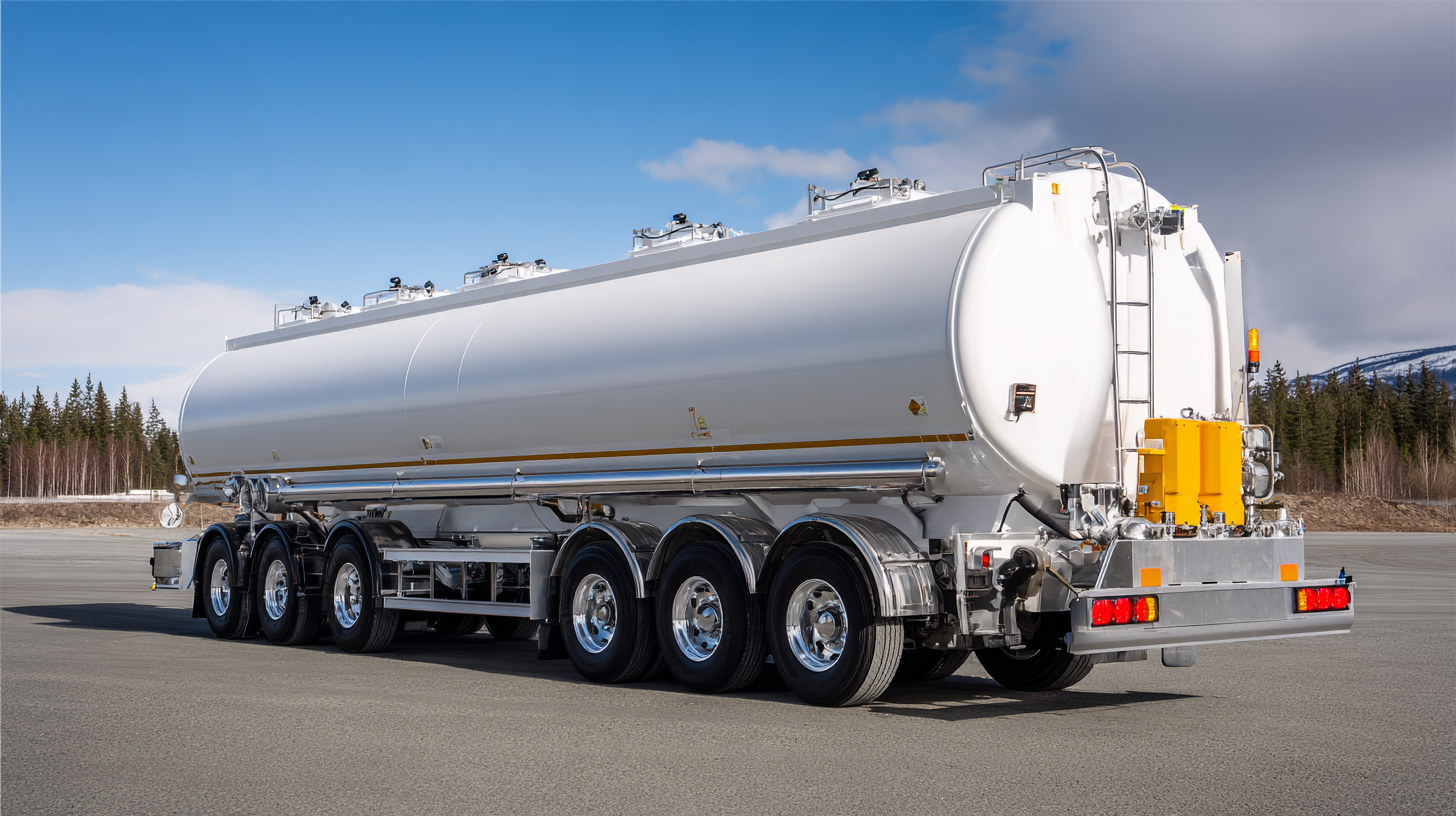5 Best Diesel Fuel Tank Solutions for Your Business Efficiency
In the competitive landscape of modern business operations, efficient fuel management is pivotal, particularly for industries that rely heavily on transportation and machinery. According to a report by the U.S. Energy Information Administration, diesel fuel accounts for approximately 70% of the energy used in the freight transportation sector, highlighting the critical role of effective diesel fuel tank solutions.

Businesses are increasingly seeking innovative ways to optimize their fuel storage and distribution systems, not only to reduce operational costs but also to improve overall efficiency.
From mobile tank systems to advanced monitoring technologies, the right diesel fuel tank solutions can transform how companies manage their fuel supply, ensuring they remain competitive while adhering to stringent environmental regulations. In this blog, we will explore the five best diesel fuel tank solutions that can significantly enhance your business efficiency.
Choosing the Right Diesel Fuel Tank Size for Your Operations
When it comes to selecting the right diesel fuel tank for your operations, understanding the optimal size is crucial for enhancing business efficiency. The capacity of your fuel tank should reflect not only your current fuel requirements but also any anticipated growth in demand. A pre-installation assessment is necessary to determine the specific size that aligns with your operational needs, factoring in variables such as peak consumption times and frequency of refueling.
A well-sized fuel tank minimizes downtime and operational interruptions, ensuring that your equipment remains functional when you need it most. Additionally, with the growing interest in hybrid systems, there's a remarkable shift towards innovations that take efficiency to new heights. By choosing the right tank size and integrating smart fuel management practices, your business can streamline its energy consumption, reduce costs, and improve overall operational effectiveness. Leveraging these insights will position your operations for success in a rapidly evolving energy landscape.
5 Best Diesel Fuel Tank Solutions for Your Business Efficiency
| Tank Size (Gallons) | Material | Portability | Pump Type | Best Suitable For |
|---|---|---|---|---|
| 100 | Steel | Fixed | Electric | Small fleets |
| 500 | Plastic | Portable | Manual | Construction sites |
| 1000 | Aluminum | Fixed | Electric | Transport businesses |
| 2000 | Steel | Fixed | Diesel Transfer | Large fleets |
| 3000 | Plastic | Portable | Manual | Agricultural operations |
Essential Features to Look for in Diesel Fuel Tanks
When choosing diesel fuel tanks for your business, it's crucial to consider specific features that directly impact efficiency and safety. A report from the Diesel Technology Forum indicates that investing in high-quality storage solutions can lead to a 10-15% reduction in fuel waste due to improved containment and dispensing systems. Key features to prioritize include double-wall construction, which minimizes the risk of leaks, and integrated monitoring systems that provide real-time data on fuel levels and potential contamination.

Another essential aspect is compliance with regulatory standards. According to the Environmental Protection Agency (EPA), businesses must adhere to stringent guidelines to prevent environmental hazards. Tanks equipped with secondary containment systems and alarm systems for detecting leaks not only comply with regulations but also enhance operational reliability. Additionally, consider the tank's ease of use; tanks with user-friendly interfaces and automated dispensing features can significantly reduce errors and downtime, ultimately boosting your overall efficiency.
Comparing Above-Ground vs. Underground Diesel Fuel Tanks
When it comes to optimizing diesel fuel storage for businesses, choosing between above-ground and underground tanks is critical. According to the U.S. Environmental Protection Agency (EPA), above-ground tanks offer easier access for maintenance and inspections, allowing for a more straightforward approach to adhering to safety regulations. Typically, above-ground storage tanks (ASTs) are less expensive to install and provide better visibility for monitoring fuel levels and potential leaks, making them an attractive option for many businesses.
On the other hand, underground storage tanks (USTs) present unique advantages, particularly concerning safety and environmental concerns. A report from the National Tank Truck Carriers (NTTC) indicates that USTs can significantly reduce the risk of fuel evaporation and exposure to weather elements, thus enhancing environmental protection. However, this comes with higher initial installation costs and potentially more complex regulatory compliance. A study conducted by the National Association of State Fire Marshals noted that UST installations could require more extensive groundwater monitoring systems due to the potential risks of leaks contaminating the surrounding soil and water supply. Ultimately, the choice between above-ground and underground diesel fuel tanks will depend on a business's specific needs, budget, and regulatory considerations.
Comparison of Above-Ground vs. Underground Diesel Fuel Tanks
Implementing Proper Safety Measures for Diesel Fuel Storage
When it comes to storing diesel fuel, implementing proper safety measures is crucial for protecting your business and the environment. Diesel fuel is flammable and poses risks such as spills and leaks, which can lead to significant financial and legal repercussions. Establishing a comprehensive safety plan is the first step. This involves utilizing appropriate storage tanks designed for diesel, which are often equipped with safety features such as spill containment and ventilation systems. Regular inspections and maintenance are essential to ensure these systems function correctly and to identify any potential issues before they escalate.
In addition to choosing the right storage solutions, training your employees on proper handling techniques is vital. Conducting regular safety drills can prepare your team for emergencies, ensuring they are aware of the correct procedures in the event of a leak or fire. Stocking emergency response kits and ensuring easy access to them can further enhance your safety protocol. By prioritizing these measures, businesses can mitigate risks associated with diesel fuel storage, thus promoting a safer and more efficient operation.
Integrating Fuel Management Systems for Enhanced Efficiency
Integrating fuel management systems can significantly enhance operational efficiency for businesses that rely on diesel fuel. According to a report by the National Renewable Energy Laboratory, companies that adopt advanced fuel management solutions can reduce their fuel costs by up to 20%. This is achieved through improved tracking of fuel usage, enabling businesses to identify inefficiencies and implement corrective measures swiftly. Additionally, real-time data analytics allows for proactive decision-making, minimizing downtime and optimizing fuel procurement strategies.

Moreover, the integration of GPS tracking and telematics systems into fuel management solutions provides businesses with critical insights into vehicle performance and fuel consumption patterns. A study from the American Transportation Research Institute found that firms using these technologies decreased fuel costs by approximately 15%, while also achieving better compliance with environmental regulations. By leveraging these integrated systems, businesses not only enhance their operational efficiency but also contribute to more sustainable practices, demonstrating the dual benefits of modern fuel management systems.
Related Posts
-

7 Reasons to Choose a Diesel Transfer Tank with Pump for Your Business
-

Unlocking Efficiency and Cost Savings with Advanced Fuel Transfer Pump Solutions
-

Mastering Dosing Pumps: A Step-by-Step Guide to Optimal Use and Maintenance
-

Progressive Cavity Pumps Exposed: A Comprehensive Comparison of Efficiency and Cost-Effectiveness
-

Top Strategies for Enhancing Efficiency with Metering Pumps
-

How to Choose the Right Double Diaphragm Pump for Your Application